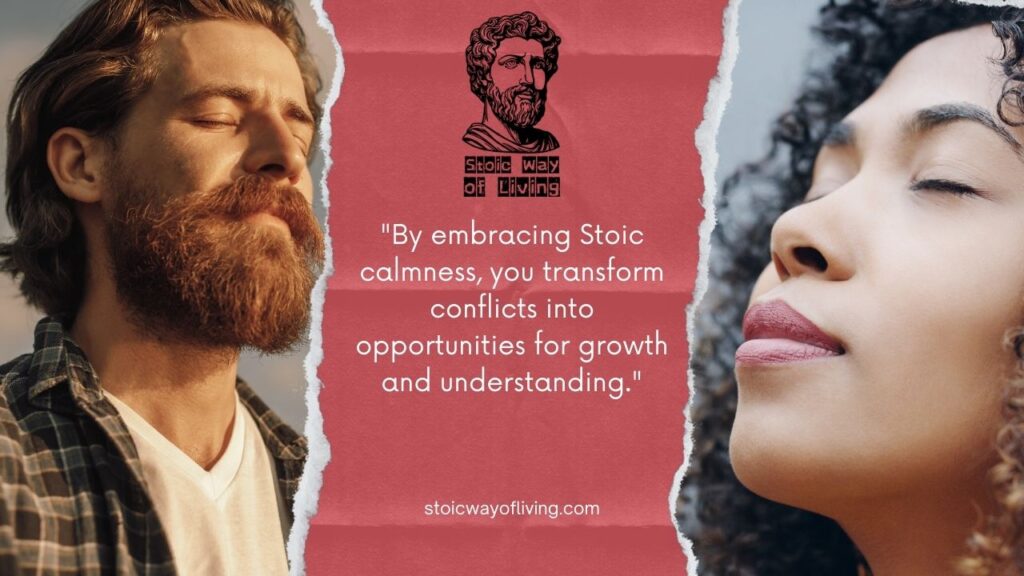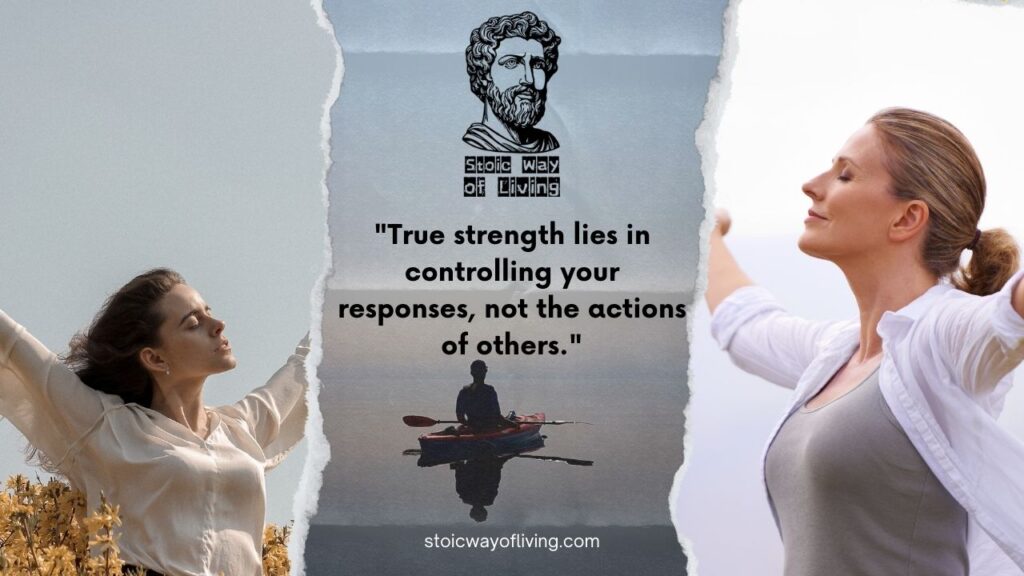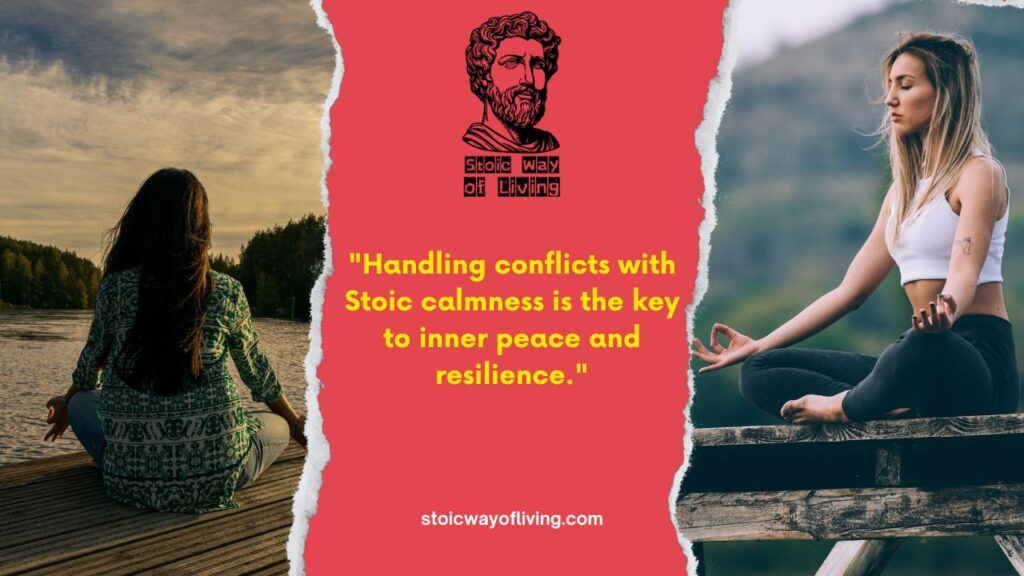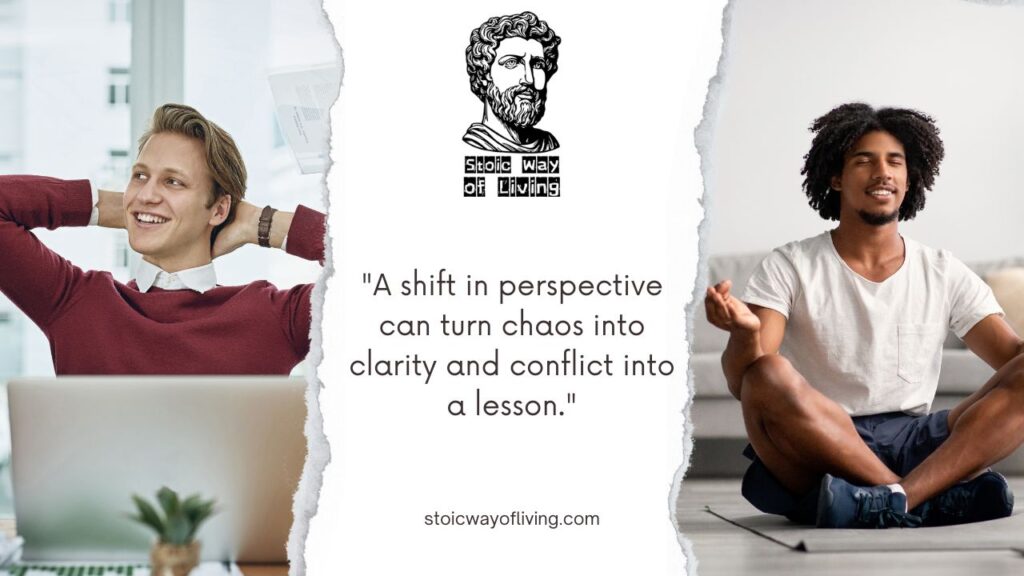Imagine handling conflicts with Stoic calmness. Embrace Stoic principles to confront conflicts with tranquility and rationality, turning chaos into opportunities for growth and understanding.
Conflicts are inevitable in life, whether in personal relationships, professional settings, or within ourselves. How we handle these conflicts often determines the quality of our lives and relationships.
This article explores how the timeless wisdom of Stoicism can help us handle conflicts with composure and integrity.
Stoicism Approach to Handling Conflict

Stoicism is one of the most influential philosophies in the Roman Empire. Notable figures such as Emperor Marcus Aurelius, the former slave Epictetus, and the statesman Seneca practiced it.
The core of Stoicism revolves around the four cardinal virtues: wisdom, courage, justice, and temperance.
These principles guide individuals in living a life of rationality and virtue, regardless of external circumstances.
The Stoics believed that while we cannot control what happens to us, we can control our responses.
This focus on internal control and self-mastery makes Stoicism particularly relevant for managing conflicts.
By understanding and applying Stoic principles, we can approach conflicts with a mindset geared towards resolution and personal growth.
Understanding the Nature of Conflict

Conflict arises when there is a perceived incompatibility of actions, goals, or ideas.
It can occur in various forms, including personal disputes, professional disagreements, or internal struggles.
Common reactions to conflict include anger, avoidance, and aggression, which often exacerbate the situation.
Understanding the nature of conflict is the first step towards managing it effectively.
Conflicts are not inherently harmful; they can be growth, learning, and improvement opportunities.
The key is in how we respond!
By recognizing that conflicts are a natural part of life and reframing them as opportunities rather than threats, we can begin to approach them with a more constructive and positive attitude.
This shift in perspective is at the heart of the Stoic approach to conflict resolution.
Stoicism, an ancient Greek and Roman philosophy, offers a practical approach to managing conflicts. By adopting Stoic principles, we can learn to face disputes calmly and rationally, transforming chaos into opportunities for growth.
Embrace Stoic principles to confront conflicts with tranquility and rationality, turning chaos into opportunities for growth and understanding.
Handling Conflicts with Stoic Calmness

Stoicism offers a practical approach to managing disputes and conflicts. it can help you turn potential chaos into opportunities for growth and understanding.
Embracing the following stoic principles to confront conflicts calmly and rationally.
Shifting Perspective

One of the foundational principles of Stoicism is the ability to shift perspective.
The Stoics believed in seeing things from a broader viewpoint, often called “the view from above.”
This involves detaching oneself from immediate emotions and examining the situation objectively.
For example, Marcus Aurelius often wrote about viewing life’s challenges from a cosmic perspective, reminding himself of the transient nature of all things.
By adopting this mindset, we can reduce the emotional intensity of conflicts and approach them more rationally.
A practical way to shift perspective is to ask ourselves how this conflict will matter in the long run. Will it be significant in a week, a month, or a year?
This exercise helps to diminish the perceived severity of the conflict and enables us to handle it with greater calmness and clarity.
Control What You Can

The Stoic concept of the dichotomy of control is crucial in managing conflicts.
This principle emphasizes that while we cannot control external events or other people’s actions, we can control our responses.
In any dispute, focusing on what we can control—our thoughts, emotions, and actions—can significantly change the outcome.
For instance, we can respond thoughtfully and constructively instead of reacting impulsively to criticism. This shift from external to internal control empowers us to handle conflicts more effectively.
We can navigate conflicts with greater resilience and poise by letting go of the need to control others and focusing on self-mastery.
Practical steps include mindfulness practices, reflection, and deliberate response strategies.
Practicing Empathy

Empathy is a cornerstone of Stoic philosophy. The Stoics believed in understanding others’ perspectives and practicing compassion.
In conflicts, empathy involves actively listening to the other person’s viewpoint and acknowledging their feelings and experiences.
This practice not only helps in de-escalating tensions but also fosters mutual respect and understanding.
For example, genuinely listening to and empathizing with their concerns during a disagreement with a colleague can lead to more constructive and collaborative solutions.
By practicing empathy, we can transform conflicts from adversarial encounters into opportunities for connection and problem-solving.
This approach aligns with the Stoic principle of treating others with kindness and justice, even in challenging situations.
Embracing Rationality and Virtue
Stoicism teaches us to prioritize rational thinking and virtuous actions over emotional reactions.
Maintaining a calm and sensible demeanor can prevent escalation and lead to a more effective resolution in conflict situations.
The Stoics valued virtues such as integrity, justice, and fairness, believing these should guide our actions.
For example, when faced with a contentious issue at work, a Stoic would strive to respond honestly and reasonably rather than succumbing to anger or defensiveness.
This commitment to rationality and virtue helps us maintain a clear mind and make decisions aligned with our values.
By embracing these principles, we can handle conflicts with a sense of purpose and ethical clarity.
Applying Stoic Principles in Modern Life

The practical application of Stoic principles can significantly enhance our ability to manage conflicts in various aspects of life.
In the workplace, practicing Stoic calmness can help navigate disagreements with colleagues, manage team dynamics, and handle stress.
For instance, a manager who approaches conflicts with Stoic detachment and rationality can create a more harmonious and productive work environment.
Applying Stoic empathy and perspective can lead to more meaningful and supportive interactions in personal relationships.
Regular self-reflection and mindfulness practices can reinforce our commitment to Stoic principles and improve our resilience.
Integrating Stoic techniques into our daily routines allows us to develop a more balanced and practical approach to handling conflicts.
See also: Building Stronger Relationships Through Stoicism – What You Need to Do!
Conclusion
Handling conflicts with Stoic calmness is a valuable skill that can profoundly impact your life.
You can approach conflicts with excellent composure and effectiveness by understanding and applying Stoic principles such as shifting perspective, controlling what you can, practicing empathy, and embracing rationality and virtue.
These timeless teachings offer practical strategies for managing life’s inevitable challenges, helping you grow and thrive in the face of adversity.
For those looking to develop their conflict resolution skills further, consider exploring “Conflict Resolution Playbook” by Jeremy Pollack. This book provides practical strategies for managing conflict in personal and professional relationships. Check it out on Amazon to enhance your ability to handle conflicts effectively and calmly.


